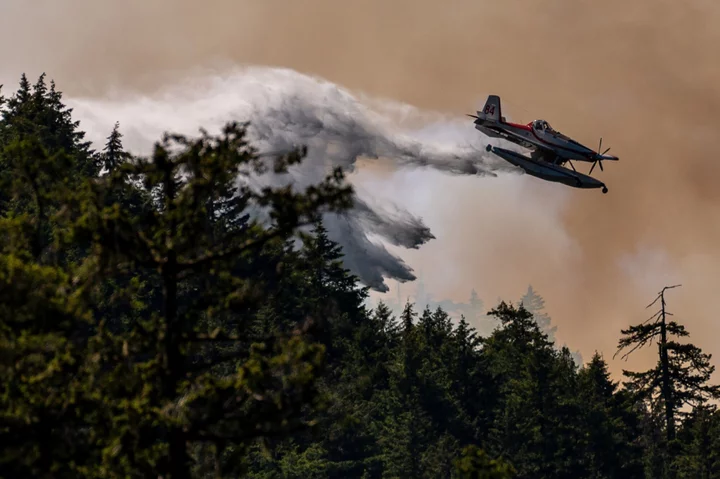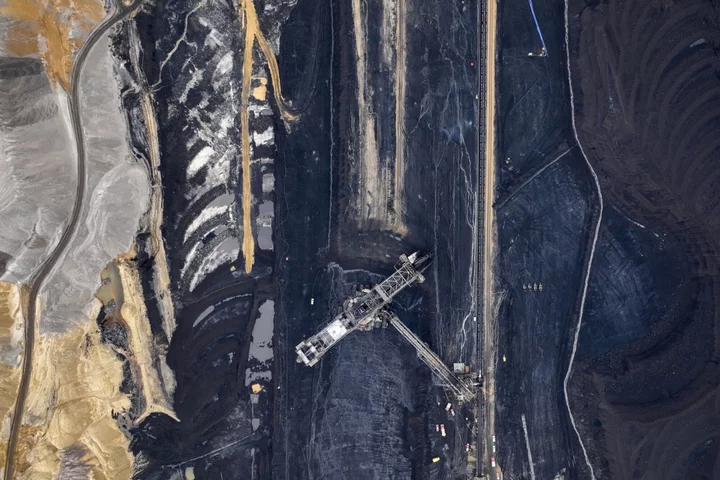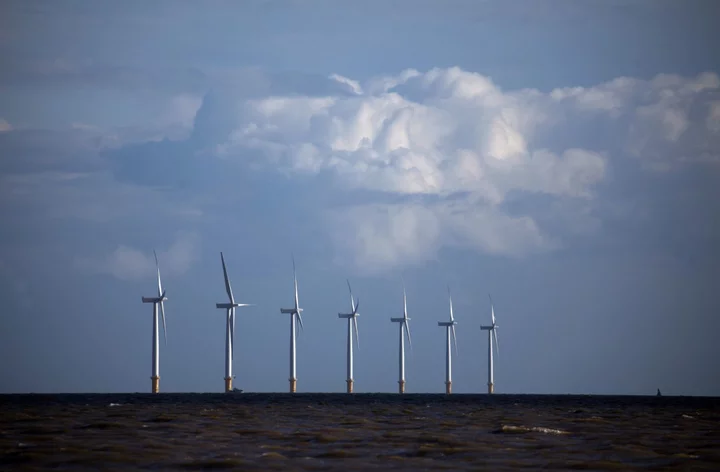Carbon emissions from wildfires in Canada are at record levels, with a plume of smoke crossing the Atlantic Ocean to cover parts of western Europe.
The amount of carbon spewed into the atmosphere reached about 160 megatons through June 26, the European Union’s Copernicus Atmosphere Monitoring Service said Tuesday. That’s the largest annual estimate for the country in 21 years of Global Fire Assimilation System data.
Wildfires started burning across different regions of Canada in May following unusually dry conditions and high temperatures. The smoke damaged air quality in North America before reaching Europe in the second week of June.
Currently, the smoke remains high in the atmosphere, and there’s no indication it’s affecting Europe’s air quality. Rather, it tends to create hazy skies with orange and red sunsets, unlike what happened in the US earlier this month, when dangerous levels of pollution halted flights and postponed events.
Europe hasn’t suffered from vast wildfires yet this summer, though increasingly hot and dry conditions make the blazes more likely. Last year, wildfires taxed the region’s infrastructure and contributed to volatility in energy and commodity prices.









